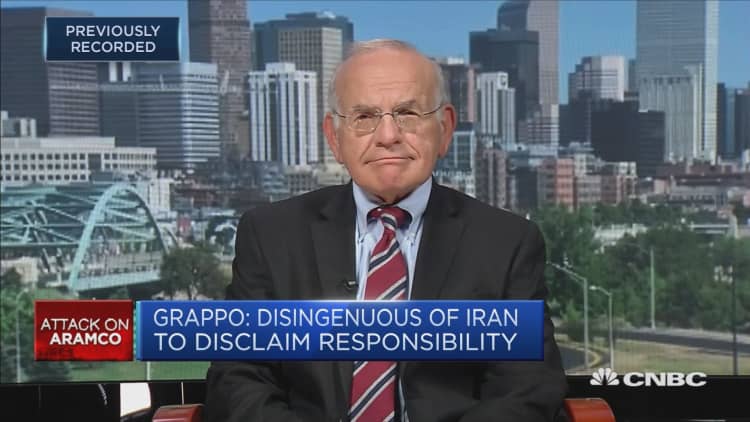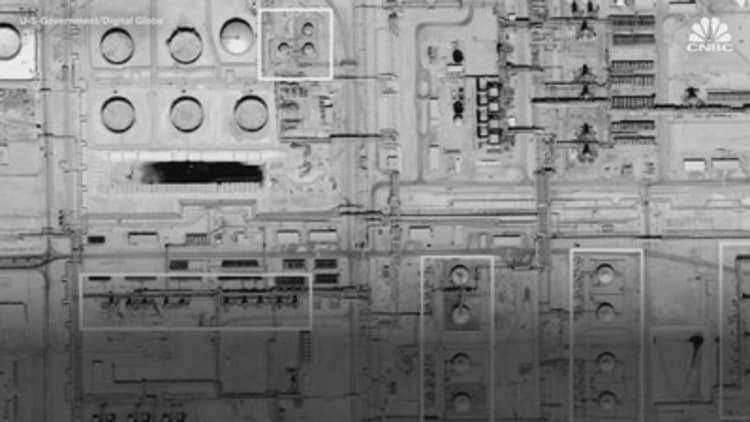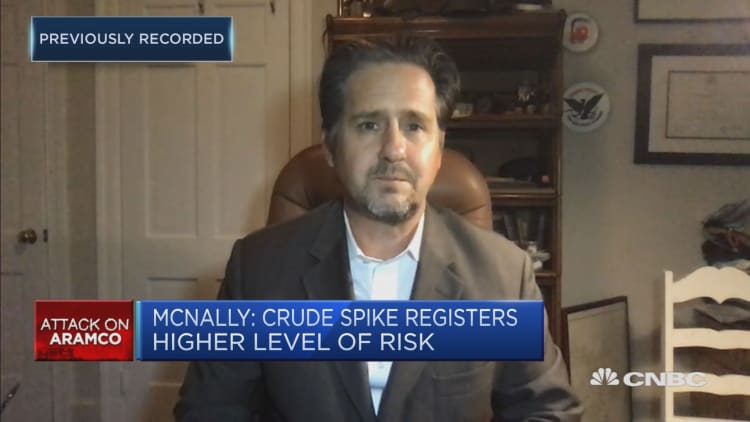
Saudi Arabia has "a great deal of explaining to do" on how it could not defend its "most critical" oil facility from drone attacks at the weekend, said Gary Grappo, former U.S. ambassador to Oman.
The Kingdom spent an estimated $67.6 billion on arms in 2018, according to Stockholm International Peace Research Institute. Saudi Arabia was just behind the U.S. and China in terms of defense spending, Grappo told CNBC's "Squawk Box" on Tuesday.
"I think the Saudi leadership has a great deal of explaining to do that a country that ranks third in terms of total defense spending ... was not able to defend its most critical, and I can't underscore that enough, its most critical oil facility from these kinds of attacks," said Grappo, who was previously in senior positions at the U.S. embassies in Riyadh, Saudi Arabia, and Baghdad, Iraq.
Saudi Arabia is one of the world's largest oil exporters, and damage to its oil facilities ignited fears of supply disruption around the world.
It's a bit alarming that these folks got through ... they were exquisitely precise, they knew exactly what to hit, they hit it perfectly.Bob McNallyRapidan Energy Group
Oil prices jumped after the Saturday attack on Saudi Aramco's oil processing facility at Abqaiq and the nearby Khurais oil field. That knocked out 5.7 million barrels of daily crude oil production — which is more than half of Saudi Arabia's global daily exports and over 5% of the world's daily crude production.
The U.S. and Saudi Arabia have blamed Iran for the attacks.

"We're talking about drones. Now, drones are not so easily detectable but, nevertheless, they had to be able to see that this was a strong possibility given the previous attacks they've experienced in previous oil facility, airports and elsewhere," said the former diplomat who is now a distinguished fellow at the University of Denver.
Saturday's attack was not the first time that the Abqaiq oil processing plant was targeted. In 2006, security guards blocked an attempted attack by al-Qaida militants on the facility.
Bob McNally, founder and president of consultancy Rapidan Energy Group, said he was "disappointed, but not surprised" by the attack. He said he had expected Riyadh to "raise defenses," especially after al-Qaida's previous attempt to attack its facilities.
"It's a bit alarming that these folks got through. We looked at those photos that were released by the Trump administration — they were exquisitely precise, they knew exactly what to hit, they hit it perfectly," he told CNBC's "Squawk Box Asia" on Tuesday.
"For all we know, they could come back. So, no grounds for complacency, in my view."
Correction: This story was revised to correct that McNally's quotes were from an interview Tuesday on "Squawk Box Asia." He also was interviewed Monday on "Squawk on the Street."



